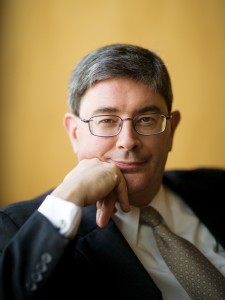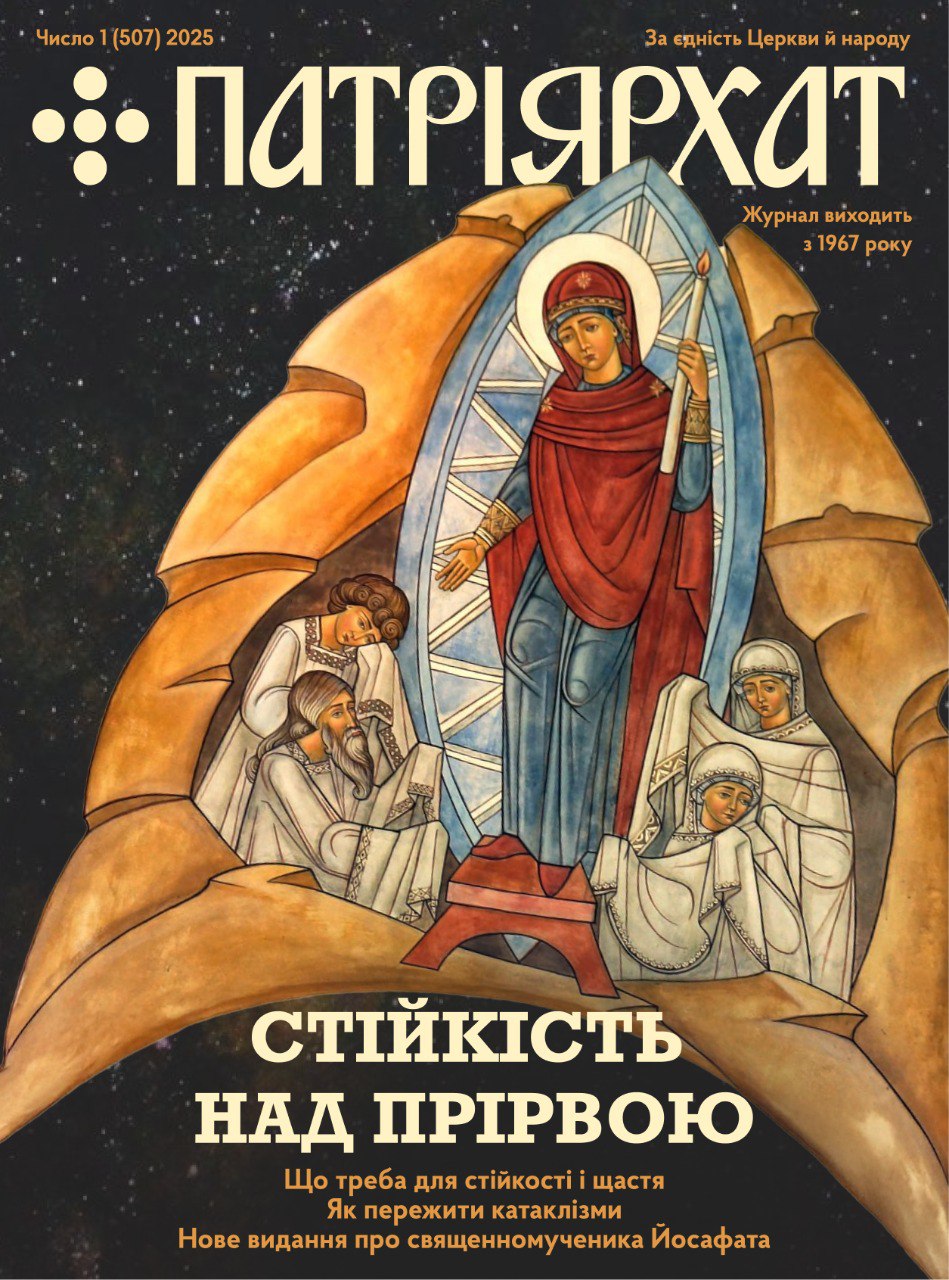The following interview with EPPC Distinguished Senior Fellow George Weigel was recently published by the Ukrainian greek-catholic magazine “The Patriarchate” (July-August, №4, 2016)
 – Two years ago more than 100 Ukrainians died under the flags of Ukraine and the European Union. It was a very strong gesture of sacrifice. But today in Ukraine we have debates about what Europe is or must be and what a “European Ukraine” means. At the same time in Brexit we witnessed the immense euro-sceptic movement. You wrote a lot of texts on the issue of European identity. What makes Europe – “Europe”?
– Two years ago more than 100 Ukrainians died under the flags of Ukraine and the European Union. It was a very strong gesture of sacrifice. But today in Ukraine we have debates about what Europe is or must be and what a “European Ukraine” means. At the same time in Brexit we witnessed the immense euro-sceptic movement. You wrote a lot of texts on the issue of European identity. What makes Europe – “Europe”?
– “Europe” is less a matter of geography than of culture — a culture formed by the fruitful interaction of Jerusalem (biblical religion), Athens (faith in reason), and Rome (convictions about the superiority of the rule of law over the rule of brute force). One of the reasons that “Europe” is faltering today is that all three of those cultural pillars are wobbling. Perhaps Ukraine, through the experience of the Maidan and what followed, can help “Europe” rediscover the truth about itself.
– Speaking specifically about the modern European project – the EU: In his address during conferral of the Charlemagne prize, Pope Francis said that “Europe, rather than protecting spaces, is called to be a mother who generates processes,” and then he stressed that we must turn our eyes to the founding fathers of post-war Europe. And Cardinal Dziwisz recently made the same reference to the EU founding fathers. So, what has the EU lost from the core idea of its founding fathers during the last decades?
– “Europe” is losing — or, if you are feeling more somber, has lost — the idea of the human person and human society that shaped the social doctrine of the Catholic Church, which was crucial in forming the vision of de Gasperi, Adenauer, and Schuman, among the founders of what is today the EU. And that view of the dignity of the human person and the organic nature of society was what sustained the Catholic social-ethical idea of “subsidiarity” — the ideas that society is a complex of social institutions that includes government but is not limited to government, and hat the free associations of civil society are crucial to public life. There’s a lot of talk today about Europe’s “democracy deficit,” meaning the Brussels bureaucracy’s ignoring the principle of subsidiarity. I’d argue that the “democracy deficit” is really a “God deficit,” for when a culture abandons the God of the Bible it also tends to abandon the idea of the human person and society that inspired the founders of the EU. And the unhappy result is what Cardinal Joseph Ratzinger called, in 205, the “dictatorship of relativism.”
– Pope Francis also has mentioned the role of the Church in “the rebirth of a Europe weary, yet still rich in energies and possibilities.” Then the Pope speaks about the “new European humanism.” There is a lot of speculation about the term “humanism” in contemporary European societies and Ukraine also. What does this “new European humanism” mean from the point of view of the Catholic Church today?
– It means the vision of the human person, human community, human origins, and human destiny that was first born in the Bible — the idea of life as journey and pilgrimage, not randomness or endless, meaningless cycles — and that was given modern social and political form in Catholic social doctrine from Leo XIII through John Paul II. What Europe most needs today is the Christian humanism of John Paul II, and a good place to start exploring that is by reading (or re-reading) his 2003 apostolic letter, Ecclesia in Europa [The Church in Europe], which was a kind of papal “report card” on how “Europe” was doing in the decade and a half after the Revolution of 1989.
– From my point of view, contemporary European society doesn’t wait for answers to its different problems from the Church’s side. Am I right, or is this skepticism about the possible role of the Church in the renewal of Europe real in today’s Europe?
– “Europe” still imagines that it can live off the social and cultural capital of its past. But if the Christian sources of that social and cultural capital aren’t renewed, the account may be bankrupted and the entire edifice may fall.
– Do you believe that as Fr. Jozef Tischner once suggested, the Catholic Church in Europe, having overcome Communism, is on a collision course with secular liberalism?
– I’d put it this way: the entire project of “Europe” is on a collision course with a radically secularized form of liberalism that ends up destroying faith in reason and in the rule of law. In fact, the collision is happening right now. And we’ve got the same issues in North America, I might add. The entire West is now faced with the paradox first formulated in the 1960s by the German legal philosopher Ernst-Friedrich Böckenförde: the liberal democratic project is based on premises that it cannot itself generate.
– I follow some discussions about religion in public life in the North American context. And I’ve read some texts about the so-called “Benedict option” based on Alasdair MacIntyre’s book “After Virtue.” For many communities, this option seems very attractive. What do you think about it in the context of all the challenges and threats to European society?
– In its present form, it’s romantic nonsense, because, first, the battle for the culture isn’t over and, second, the forces of the dictatorship of relativism won’t allow those intentional, small communities of conviction to be formed and sustained. A far more thoughtful variant on this is found in my colleague Yuval Levin’s book, The Fractured Republic.
– You have written eloquently about both the secularization of Europe and the revival of the Catholic faith in places like Poland. Yet even in Poland, at least according to statistics, religious practice as well as adherence to Catholic moral teaching are declining. How do you see the future of the Church in that country?
– Poland could be one engine of Europe’s self-renewal, but it won’t be until the bishops of Poland demonstrate that they understand the social doctrine of John Paul II and until Polish politics stops re-fighting the internal wars of the 1920s.
– What about Orthodox European countries like Greece, Romania, and Bulgaria? Some voices say that countries with an Eastern Christian tradition are more “spiritual” and could help to find a spiritual compass for Western societies. Is this true? Do you see any prospects of the Catholic Church in Eastern Europe working with that region’s Orthodox Churches for the re-evangelization of Europe?
– There is nothing in the theology of Orthodoxy to suggest that it has a coherent proposal for building the free and virtuous society in the twenty-first century. The Byzantine “symphonia” inevitably leads to the subordination of the Church to the state — at least that seems to be the verdict of history. So we need a new and serious conversation between the Eastern Christian traditions and the social doctrine of the Catholic Church. Happily, at least some Orthodox thinkers are proposing just that. There are some hopeful signs, but for so long as Russian Orthodoxy is tied to Putinesque nationalism, it’s unlikely.
– In Eastern European countries religion is very close to nationalism; in some periods it helped them to resist, but is it a good thing for today’s situation? For example, in Poland, Ukraine or other countries?
– Christian conviction can form a patriotism that is not xenophobic, but that comes to appreciate others’ national and cultural patrimonies through an affirmation of one’s own. That’s very different from xenophobia, which is the temptation faced by certain forms of Christian nationalism today.
– What could Europeans and East Europeans learn from US Catholics in the face of modern challenges? Because our present discussions in the public sphere are not unknown to your experience, such themes concerning moral principles and the place of religion in the public square, and its influence on social processes, are not new to American Catholics.
– I’d like to say that “Europe” could learn from America some lessons about building and sustaining genuinely pluralistic democracies, but given the current crisis in American political culture, which has produced two utterly unacceptable presidential candidates, I would be very reluctant to say that, at least without a lots of qualifiers.
– Today, as in the interwar period, we see a number of authoritarian governments in Eastern Europe and beyond seeking (and sometimes obtaining) the support of Christian churches. One can see this phenomenon in Hungary, Poland, and Russia, for example. What is your view of this development?
– Hungary, Poland, and Russia are three very different situations that ought not be taken as three expressions of the same phenomenon. Russia, for example, is an authoritarian kleptocracy, which is not true of either Hungary or Poland. The real question at issue in Hungary and Poland is whether democratic commitments can co-exist with a rejection of the lifestyle libertinism of Brussels, which is the most aggressive form being taken by European laicite today.
– With Pope Francis, the focus of the Catholic Church has moved to the Africa, Asia and Latin America. It seems to me that this focus is disproportional in relation to the European situation, and we might “lose” Europe in the end. Or does Europe not need such a focus now, being able to deal with its problems relying on its own resources?
– The first inculturation of the Gospel was in Europe. That’s why the fate of Europe will always be crucial to the Christian project throughout the world. Losing the historic Christian heartland may be a possibility, but it certainly won’t be helpful in evangelizing the world.
Anatoliy Babynskyi, editor-in-chief of “The Patriarchate” magazine
George Weigel is the Distinguished Senior Fellow and William E. Simon Chair in Catholic Studies at the Ethics and Public Policy Center.

